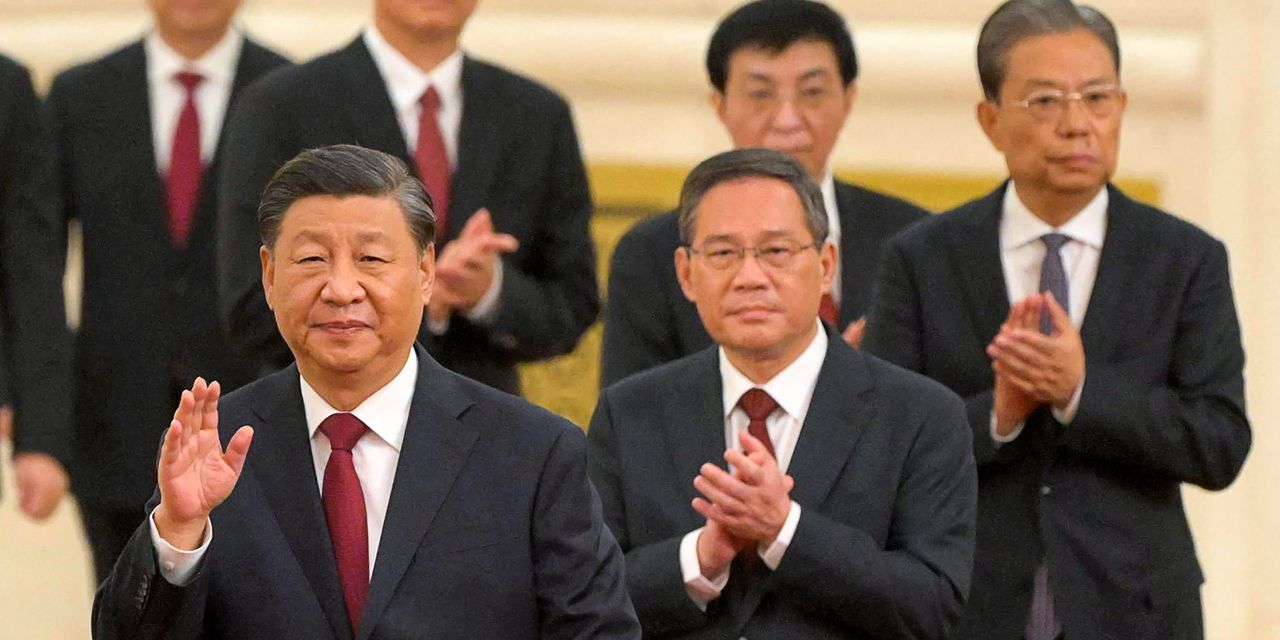“‘It looks like he installed a war cabinet and removed the reform and opening people,’”
That’s Kyle Bass, founder and chief investment officer of Hayman Capital, offering his take on the conclusion of Chinese Communist Party’s recently completed congress. Top leader Xi Jinping and the party on Sunday unveiled a new Politburo Standing Committee, a seven-member board that represents the top echelon of political power in China and will be the highest decision-making body of the country for the next five years.
New appointees to the Politburo Standing Committee include Li Qiang, who has been appointed as the second-ranking member of the Standing Committee and is poised to become the country’s next premier when Li Keqiang steps down in March, 2023. Li Qiang worked under Xi as his chief of staff and his personal aide when Xi was Zhejiang province’s top party chief two decades ago.
Other new members of the seven-man Standing Committee are Ding Xuexiang, director of the General Office of the Communist Party and Xi’s personal secretary, Cai Qi, the party secretary of Beijing, and Li Xi, who is not known to have worked directly with Xi during his career. Zhao Leji and Wang Huning returned from the previous committee.
All are seen by observers to have close allegiance to Xi.
See: China’s Xi may have all the power in the world but he still can’t implement a property tax
“He sacked the technocrats that were running the markets, he sacked the head of the CSRC, the Chinese equivalent of the SEC, and he removed the person from the People’s Bank of China who wasn’t even at retirement age,” Bass, a vocal China critic, said in a CNBC interview on Tuesday.
The current vice premier Liu He, who led trade negotiations with the U.S., along with the central bank governor Yi Gang and the banking regulator Guo Shuqing were dropped off lists of both the Standing Committee and the Central Committee.
Bass also said the choice of security officials Xi appointed to be in the Central Commission was striking as it underlines Beijing’s growing concern in the face of tensions with Taiwan and Washington. Chen Wenqing, the current minister of state security, is expected to head the party’s top security body, the Central Political and Legal Affairs Commission, along with Wang Xiaohong, the current minister of public security.
“He started changing where he was actually willing to go to war over Taiwan, means that not only would he be willing to use force on Taiwan if Taiwan was seeking independence, but now he can seek a forceful resolution of the reunification of Taiwan, even if the focus is simply on restoring or fighting the ‘Taiwanese separatists’,” said Bass. “He moved the goal posts on the war.”
See: Why investors are fleeing Chinese assets as Xi tightens grip on power
Financial-market investors were spooked by the outcome of the Communist Party’s leadership reshuffle and dumped Chinese equities and the yuan on Monday. Chinese stock markets tumbled, with Hong Kong’s Hang Seng
HSI,
ending more than 6% lower to a new 13-year low. The Shanghai Composite
SHCOMP,
finished 2% lower, while the benchmark CSI 300
000300,
declined 2.9%.
In the U.S., the New York-listed shares of China-based companies plummeted with tech giants Alibaba Group Holding Ltd.
BABA,
Tencent Holdings Ltd.
TCEHY,
and Meituan
MPNGY,
tumbling 12.5%, 14.2% and 16.7%, respectively on Monday.
The broader U.S. market saw solid gains so far this week as investors weighed a growing slate of corporate earnings. The S&P 500
SPX,
was up 1.4% on Tuesday, while the Dow Jones Industrial Average
DJIA,
gained 0.9% and Nasdaq Composite
COMP,
advanced 2%.
